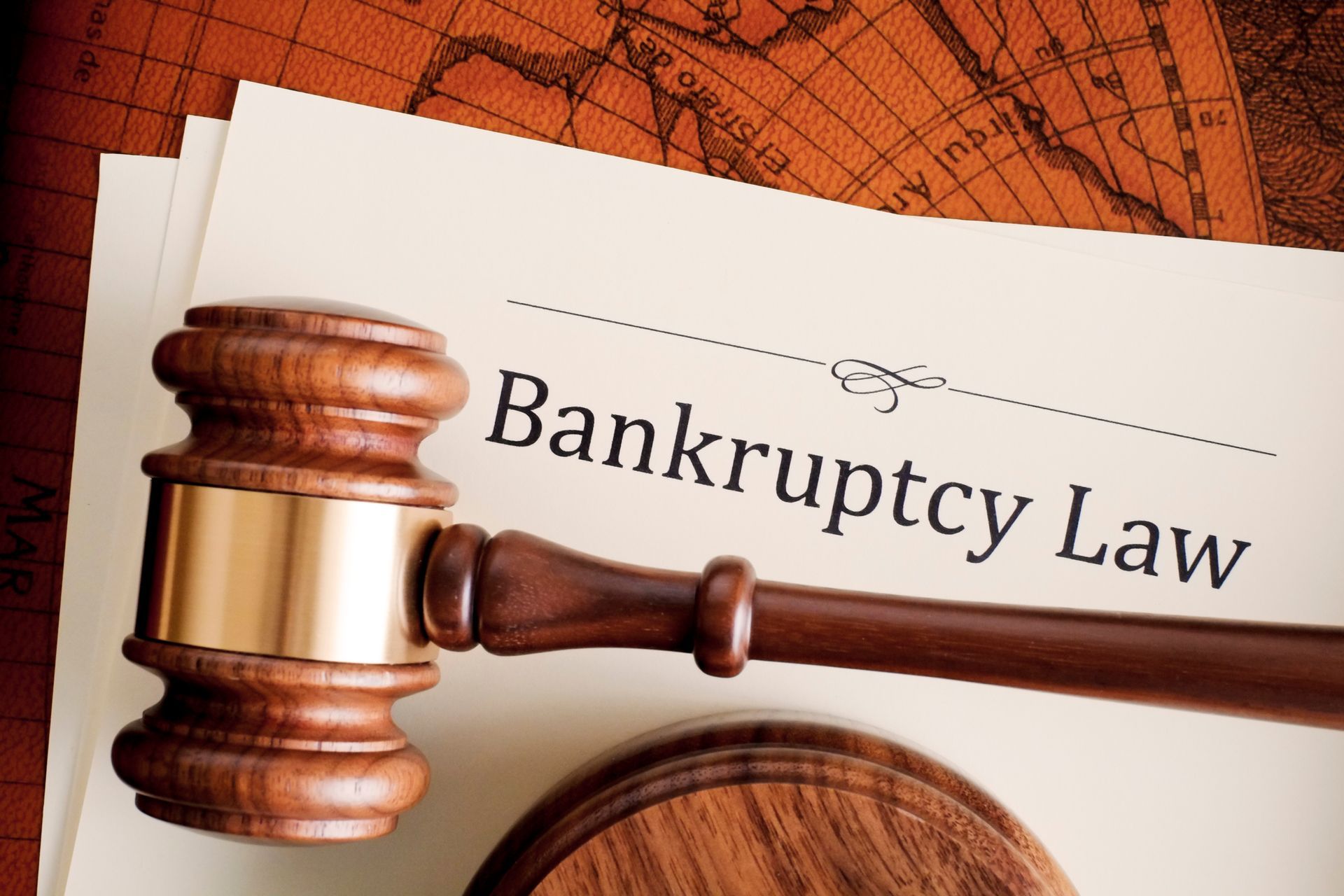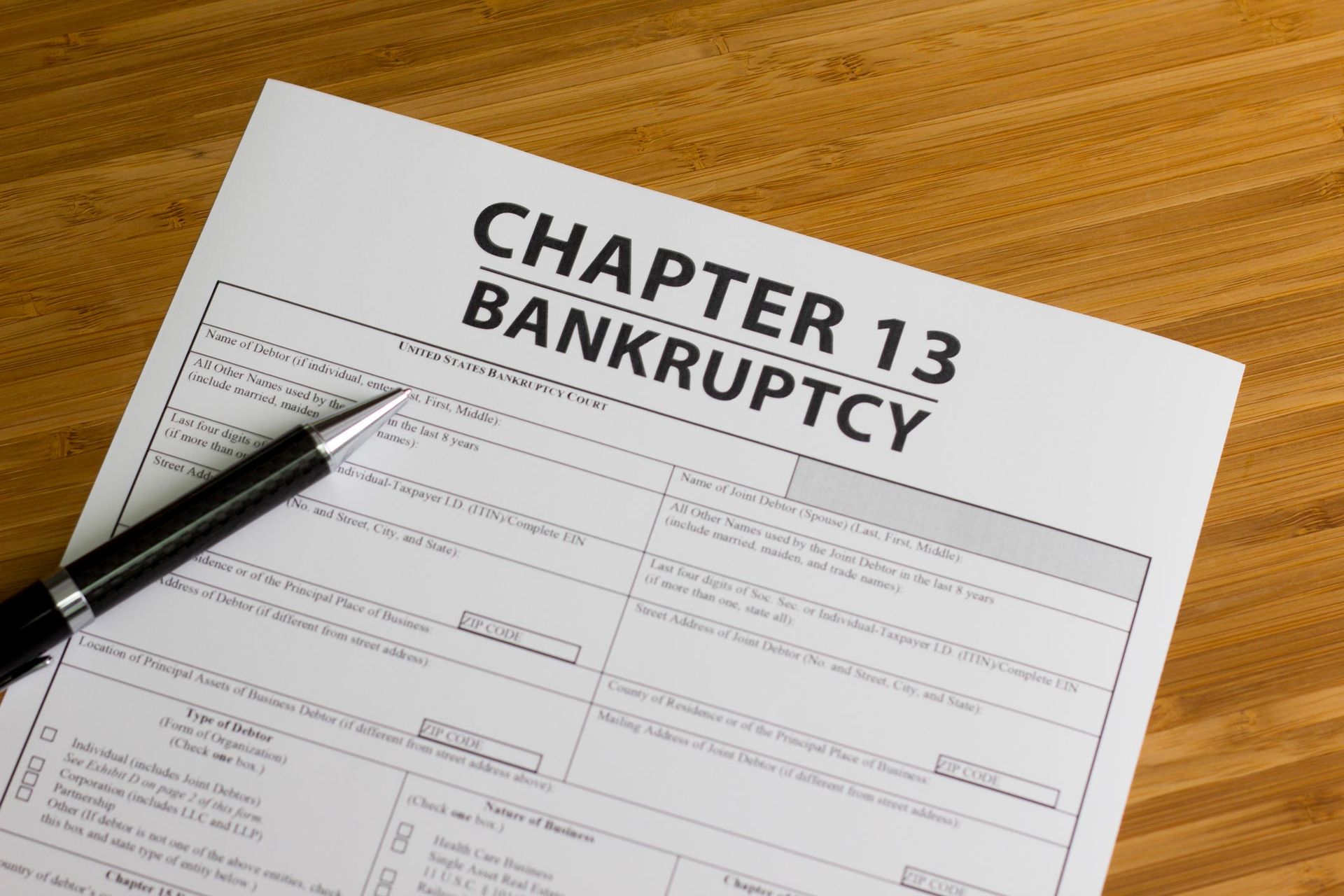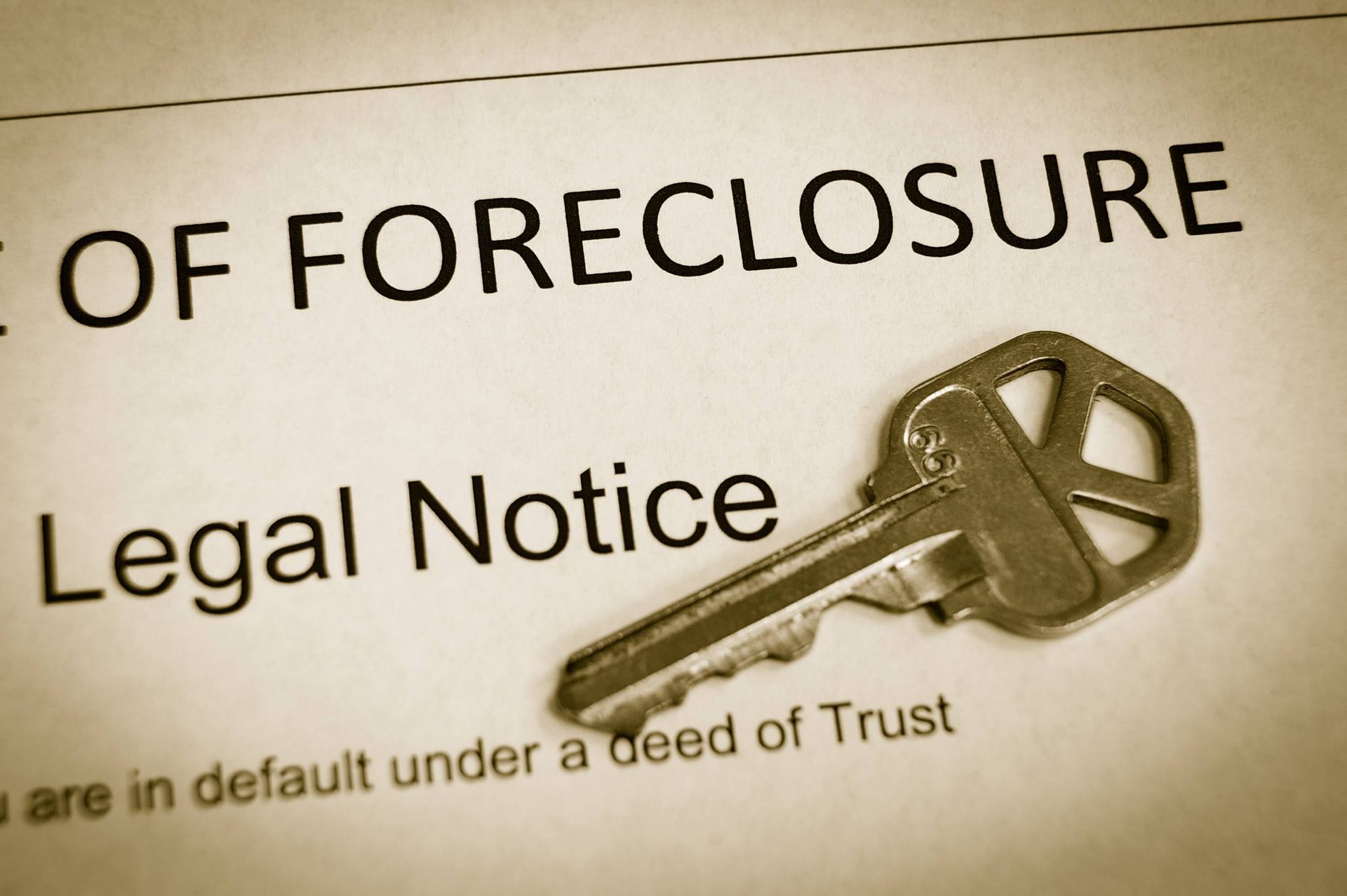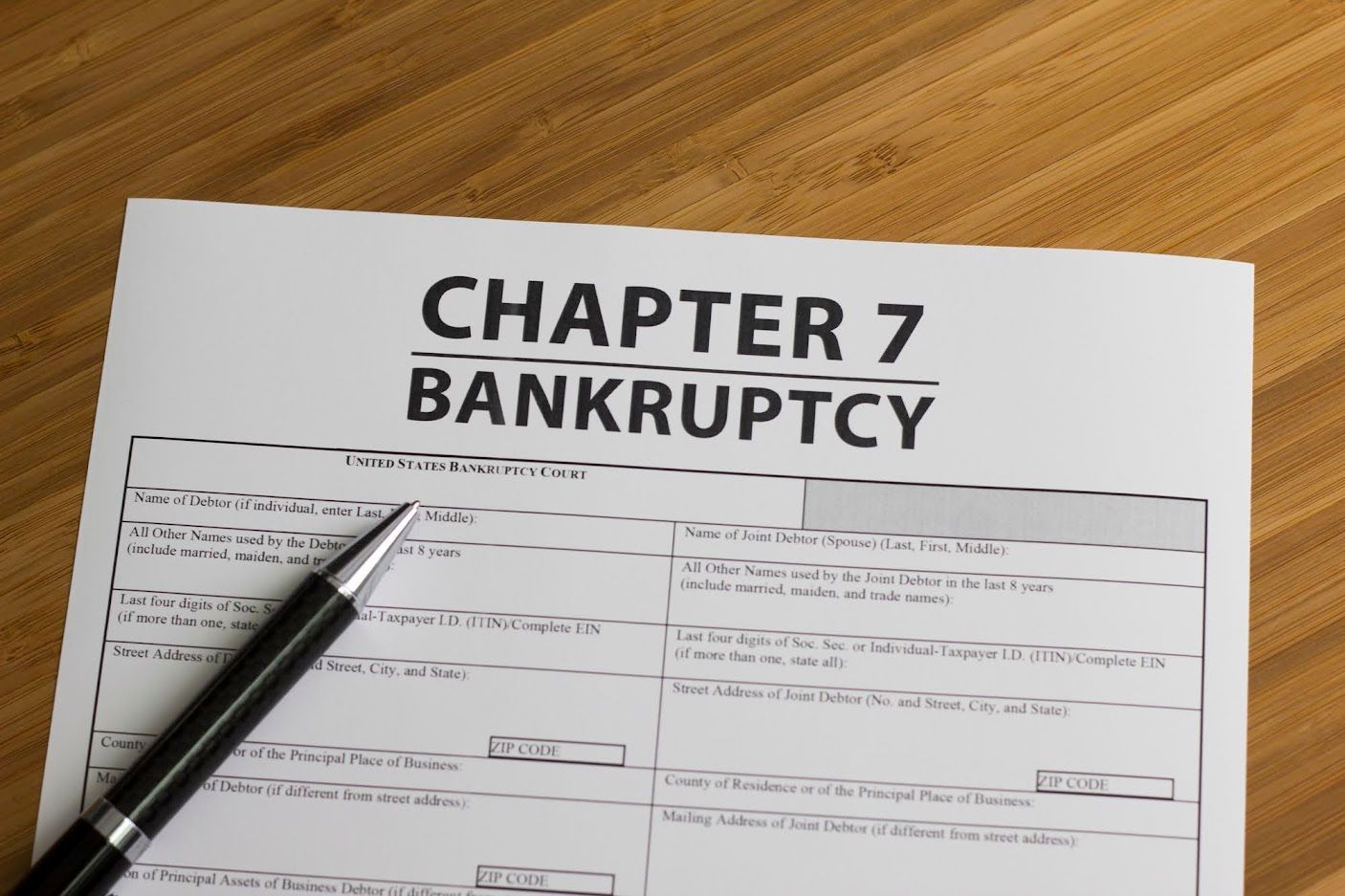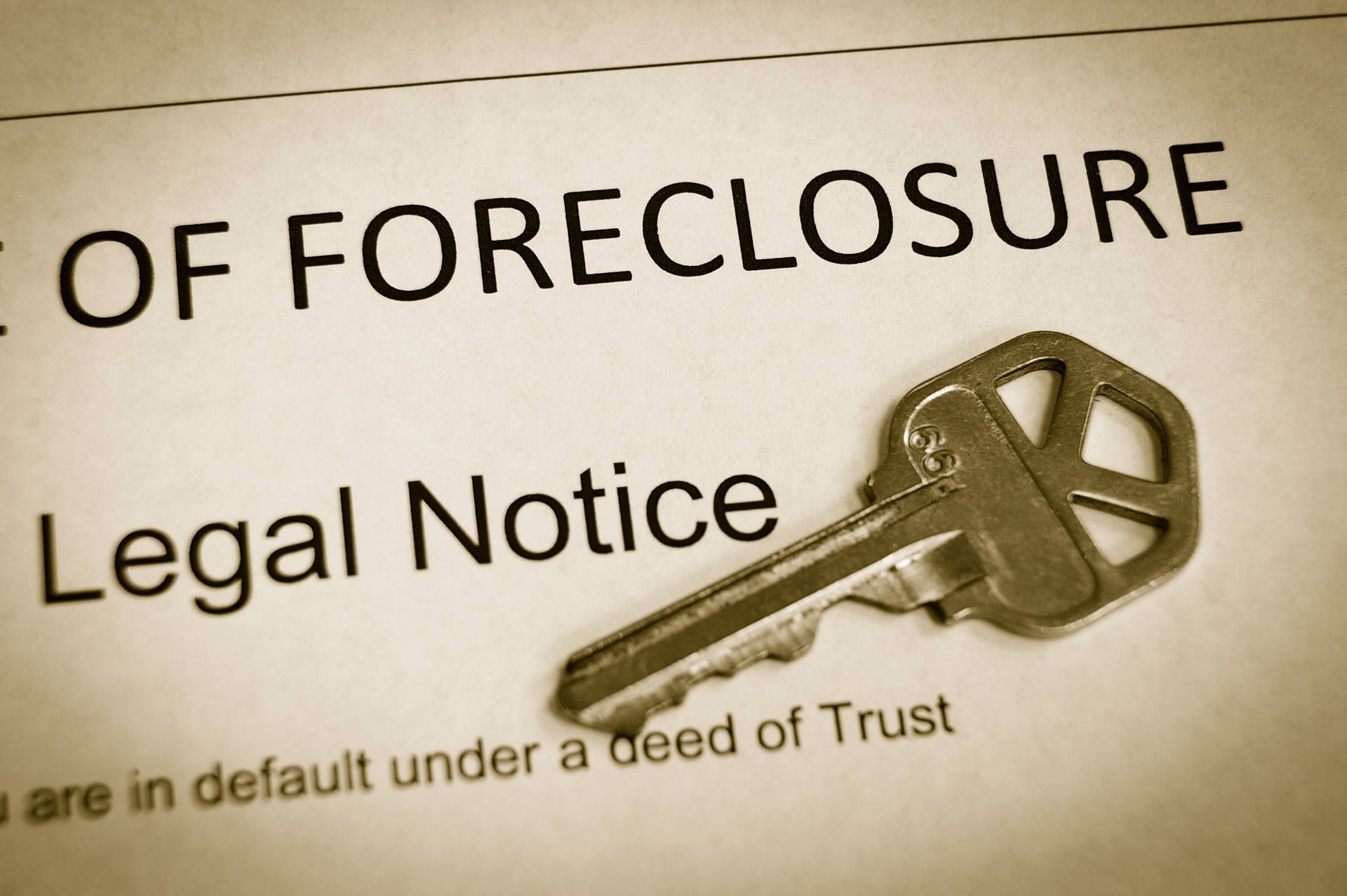
Same Day Telephone, Zoom or In-Person Meetings Available
Palm Beach County: (561) 689-6789
St. Lucie County: (772) 344-9090
Blog Layout
Saving Your House From Foreclosure
February 28, 2023

A large medical expense or losing your job can lead to your worst nightmare: foreclosure. But options exist to help you keep your home. Here is how you can save your home when facing foreclosure.
If the financial setback is temporary, you might work out a repayment plan with the lender. A repayment plan is a viable option if you can afford to continue making monthly payments but are unable to pay the missed payments all at once. The lender will allow you to make up missed payments and can even suspend or reduce the payments for a certain amount of time. You may also convince the lender to drop penalties and fees that may have accumulated.
A repayment plan gives you some breathing space for a few months, depending on the situation. The lender will add a fraction of the missed payments to your monthly repayments. But you have to be honest and only agree to a payment plan that you can afford.
A mortgage provider can permanently change the mortgage terms to allow you to pay for the loan. Common modifications include a reduction of the interest rate and the addition of overdue amounts to your loan balance. The mortgage service can also extend the loan's duration by a few more months or years. But the lender may also add any outstanding amounts to the total loan balance.
Loan modification can roll the due amount into a loan or amortize the balance. The purpose of a loan modification is to make your monthly payments affordable. Even if the request for a loan modification won't work, it can slow the foreclosure process.
You can consider a short sale if you aren't eligible for financial assistance. A short sale involves selling the house for less than the outstanding loan amount. For this to work, you must own equity in the home and receive approval from the lender. Because the lender can sue for a deficiency judgment after you've sold the house, always get a lender to give the approval in writing.
A qualified real estate agent who understands short sales may be able to help. The proceeds from the sale will go to the lender, who might forgive any outstanding loan balance. A short sale allows you to avoid the credit score damage that comes with foreclosure.
For some people, relinquishing home ownership and moving on can make more economic sense. You can voluntarily surrender the ownership of your home to the lender. The ownership transfer releases you from the mortgage application and helps you avoid foreclosure. Although your credit score will take a hit after the deed in lieu, the hit will still be less than that from a foreclosure.
You can get another loan to finance your outstanding mortgage. The new lender is likely to provide higher interest but will give you some time to start repayments. However, refinancing may not be possible if you have bad credit.
While a Chapter 13 bankruptcy can help you keep your home, a Chapter 7 bankruptcy may not do the same. Chapter 7 bankruptcy is only viable if you don't own much of the house and are current on the loan repayment. But when you file for Chapter 7 bankruptcy, you can get relief for a few months and stop the foreclosure.
If you are facing foreclosure, you need to make the best move to save your home and prevent a poor credit rating. Ozment Law is here to act as your experienced legal aid so that you can better manage the foreclosure. We can also help you with title insurance, real estate closings, and bankruptcy filings. Contact us for more information.
Work It Out With Your Lender
If the financial setback is temporary, you might work out a repayment plan with the lender. A repayment plan is a viable option if you can afford to continue making monthly payments but are unable to pay the missed payments all at once. The lender will allow you to make up missed payments and can even suspend or reduce the payments for a certain amount of time. You may also convince the lender to drop penalties and fees that may have accumulated.
A repayment plan gives you some breathing space for a few months, depending on the situation. The lender will add a fraction of the missed payments to your monthly repayments. But you have to be honest and only agree to a payment plan that you can afford.
Get a Loan Modification
A mortgage provider can permanently change the mortgage terms to allow you to pay for the loan. Common modifications include a reduction of the interest rate and the addition of overdue amounts to your loan balance. The mortgage service can also extend the loan's duration by a few more months or years. But the lender may also add any outstanding amounts to the total loan balance.
Loan modification can roll the due amount into a loan or amortize the balance. The purpose of a loan modification is to make your monthly payments affordable. Even if the request for a loan modification won't work, it can slow the foreclosure process.
Conduct a Short Sale
You can consider a short sale if you aren't eligible for financial assistance. A short sale involves selling the house for less than the outstanding loan amount. For this to work, you must own equity in the home and receive approval from the lender. Because the lender can sue for a deficiency judgment after you've sold the house, always get a lender to give the approval in writing.
A qualified real estate agent who understands short sales may be able to help. The proceeds from the sale will go to the lender, who might forgive any outstanding loan balance. A short sale allows you to avoid the credit score damage that comes with foreclosure.
Choose a Deed in Lieu of Foreclosure
For some people, relinquishing home ownership and moving on can make more economic sense. You can voluntarily surrender the ownership of your home to the lender. The ownership transfer releases you from the mortgage application and helps you avoid foreclosure. Although your credit score will take a hit after the deed in lieu, the hit will still be less than that from a foreclosure.
Refinance
You can get another loan to finance your outstanding mortgage. The new lender is likely to provide higher interest but will give you some time to start repayments. However, refinancing may not be possible if you have bad credit.
File for Chapter 7 or Chapter 13 Bankruptcy
While a Chapter 13 bankruptcy can help you keep your home, a Chapter 7 bankruptcy may not do the same. Chapter 7 bankruptcy is only viable if you don't own much of the house and are current on the loan repayment. But when you file for Chapter 7 bankruptcy, you can get relief for a few months and stop the foreclosure.
If you are facing foreclosure, you need to make the best move to save your home and prevent a poor credit rating. Ozment Law is here to act as your experienced legal aid so that you can better manage the foreclosure. We can also help you with title insurance, real estate closings, and bankruptcy filings. Contact us for more information.
Quick Links
Contact Information
Address:
Palm Beach County: 2001 Palm Beach Lakes Blvd Suite 500 West Palm Beach, FL 33409

Content, including images, displayed on this website is protected by copyright laws. Downloading, republication, retransmission or reproduction of content on this website is strictly prohibited. Terms of Use
| Privacy Policy

